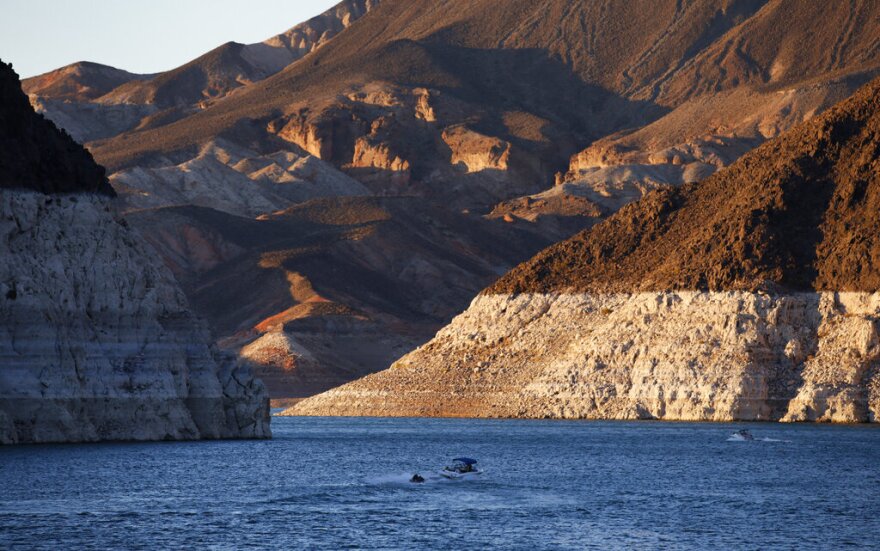Southern Nevadan water use grew during the pandemic lockdown while people were stuck at home, a new UNLV study says.
The research, recently published in the Journal of Environmental Economics and Management, found that Las Vegas Valley residential water use soared last year, outpacing pre-pandemic usage across Southern Nevada’s three main property types: residential, commercial, and schools.
That compounds the region’s water challenges as it struggles with a 20-year drought and a shrinking reservoir at Lake Mead.
“Given the condition of Lake Mead and the observation that many are still continuing to work from home, we think there are significant and broader implications for policymakers on regional and national scales,” the researchers wrote.
The findings that water usage increase surprised a UNLV professor who co-authored the article.
“We were hoping that maybe we would even have some water savings,” said Nicholas Irwin, an assistant professor of economics at UNLV. “We were really surprised at that residential usage goes up that first month after, and then it keeps going up the months even beyond that.”
Irwin said the research — conducted with colleagues Ian McDonough and Shawn McCoy — showed residential water usage increased by more than one-third during the height of the pandemic and its stay-at-home orders.
“This increase is sort of even more astounding that it's so much bigger, because the only thing that was different was to stay at home order,” Irwin told State of Nevada.
“So if we're at home more frequently in the future, especially as some of us may move to more remote work. That obviously is going to put additional stress on our water systems.”
Irwin said he hopes his research promotes greater community buy-in for water conservation measures.
“If we don't get a grip on it now and find a way to encourage our current residents and our new residents to really start to conserve water, then additional drought declarations and additional reductions in water may impact our ability to continue to grow as we have,” he said.
Nicholas Irwin, assistant professor of economics, UNLV








